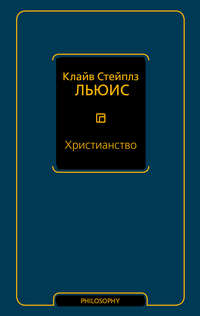
Полная версия
Screwtape Proposes a Toast
All is summed up in the prayer which a young female human is said to have uttered recently: “Oh God, make me a normal twentieth-century girl!” Thanks to our labours, this will mean increasingly, “Make me a minx, a moron, and a parasite.”
Meanwhile, as a delightful by-product, the few (fewer every day) who will not be made Normal and Regular and Like Folks and Integrated, increasingly tend to become in reality the prigs and cranks which the rabble would in any case have believed them to be. For suspicion often creates what it suspects. (“Since, whatever I do, the neighbours are going to think me a witch, or a Communist agent, I might as well be hanged for a sheep as a lamb and become one in reality.”) As a result we now have an intelligentsia which, though very small, is very useful to the cause of Hell.
But that is a mere by-product. What I want to fix your attention on is the vast, over-all movement towards the discrediting, and finally the elimination, of every kind of human excellence—moral, cultural, social, or intellectual. And is it not pretty to notice how Democracy (in the incantatory sense) is now doing for us the work that was once done by the most ancient Dictatorships, and by the same methods? You remember how one of the Greek Dictators (they called them “tyrants” then) sent an envoy to another Dictator to ask his advice about the principles of government. The second Dictator led the envoy into a field of corn, and there he snicked off with his cane the top of every stalk that rose an inch or so above the general level. The moral was plain. Allow no pre-eminence among your subjects. Let no man live who is wiser, or better, or more famous, or even handsomer than the mass. Cut them all down to a level; all slaves, all ciphers, all nobodies. All equals. Thus Tyrants could practise, in a sense, “democracy.” But now “democracy” can do the same work without any other tyranny than her own. No one need now go through the field with a cane. The little stalks will now of themselves bite the tops off the big ones. The big ones are beginning to bite off their own in their desire to Be Like Stalks.
I have said that to secure the damnation of these little souls, these creatures that have almost ceased to be individual, is a laborious and tricky work. But if proper pains and skill are expended, you can be fairly confident of the result. The great sinners seem easier to catch. But then they are incalculable. After you have played them for seventy years, the Enemy may snatch them from your claws in the seventy-first. They are capable, you see, of real repentance. They are conscious of real guilt. They are, if things take the wrong turn, as ready to defy the social pressures around them for the Enemy’s sake as they were to defy them for ours. It is in some ways more troublesome to track and swat an evasive wasp than to shoot, at close range, a wild elephant. But the elephant is more troublesome if you miss.
My own experience, as I have said, was mainly on the English sector, and I still get more news from it than from any other. It may be that what I am now going to say will not apply so fully to the sectors in which some of you may be operating. But you can make the necessary adjustments when you get there. Some application it will almost certainly have. If it has too little, you must labour to make the country you are dealing with more like what England already is.
In that promising land the spirit of I’m as good as you has already become something more than a generally social influence. It begins to work itself into their educational system. How far its operations there have gone at the present moment, I would not like to say with certainty. Nor does it matter. Once you have grasped the tendency, you can easily predict its future developments; especially as we ourselves will play our part in the developing. The basic principle of the new education is to be that dunces and idlers must not be made to feel inferior to intelligent and industrious pupils. That would be “undemocratic”. These differences between the pupils—for they are obviously and nakedly individual differences—must be disguised. This can be done on various levels. At universities, examinations must be framed so that nearly all the students get good marks. Entrance examinations must be framed so that all, or nearly all, citizens can go to universities, whether they have any power (or wish) to profit by higher education or not. At schools, the children who are too stupid or lazy to learn languages and mathematics and elementary science can be set to doing the things that children used to do in their spare time. Let them, for example, make mud-pies and call it modelling. But all the time there must be no faintest hint that they are inferior to the children who are at work. Whatever nonsense they are engaged in must have—I believe the English already use the phrase—“parity of esteem”. An even more drastic scheme is not impossible. Children who are fit to proceed to a higher class may be artificially kept back, because the others would get a trauma—Beelzebub, what a useful word!—by being left behind. The bright pupil thus remains democratically fettered to his own age-group throughout his school career, and a boy who would be capable of tackling Aeschylus or Dante sits listening to his coaeval’s attempts to spell out A CAT SAT ON THE MAT.
In a word, we may reasonably hope for the virtual abolition of education when I’m as good as you has fully had its way. All incentives to learn and all penalties for not learning will vanish. The few who might want to learn will be prevented; who are they to overtop their fellows? And anyway the teachers—or should I say, nurses?—will be far too busy reassuring the dunces and patting them on the back to waste any time on real teaching. We shall no longer have to plan and toil to spread imperturbable conceit and incurable ignorance among men. The little vermin themselves will do it for us.
Of course this would not follow unless all education became state education. But it will. That is part of the same movement. Penal taxes, designed for that purpose, are liquidating the Middle Class, the class who were prepared to save and spend and make sacrifices in order to have their children privately educated. The removal of this class, besides linking up with the abolition of education, is, fortunately, an inevitable effect of the spirit that says I’m as good as you. This was, after all, the social group which gave to the humans the overwhelming majority of their scientists, physicians, philosophers, theologians, poets, artists, composers, architects, jurists, and administrators. If ever there was a bunch of tall stalks that needed their tops knocked off, it was surely they. As an English politician remarked not long ago, “A democracy does not want great men.”
It would be idle to ask of such a creature whether by want it means “need” or “like”. But you had better be clear. For here Aristotle’s question comes up again.
We, in Hell, would welcome the disappearance of Democracy in the strict sense of that word; the political arrangement so called. Like all forms of government it often works to our advantage; but on the whole less often than other forms. And what we must realise is that “democracy” in the dialobical sense (I’m as good as you, Being like Folks, Togetherness) is the finest instrument we could possibly have for extirpating political Democracies from the face of the earth.
For “democracy” or the “democratic spirit” (diabolical sense) leads to a nation without great men, a nation mainly of subliterates, morally flaccid from lack of discipline in youth, full of the cocksureness which flattery breeds on ignorance, and soft from lifelong pampering. And that is what Hell wishes every democratic people to be. For when such a nation meets in conflict a nation where children have been made to work at school, where talent is placed in high posts, and where the ignorant mass are allowed no say at all in public affairs, only one result is possible.
One Democracy was surprised lately when it found that Russia had got ahead of it in science. What a delicious specimen of human blindness! If the whole tendency of their society is opposed to every sort of excellence, why did they expect their scientists to excel?
It is our function to encourage the behaviour, the manners, the whole attitude of mind, which democracies naturally like and enjoy, because these are the very things which, if unchecked, will destroy democracy. You would almost wonder that even humans don’t see it themselves. Even if they don’t read Aristotle (that would be undemocratic) you would have thought the French Revolution would have taught them that the behaviour aristocrats naturally like is not the behaviour that preserves aristocracy. They might then have applied the same principle to all forms of government.
But I would not end on that note. I would not—Hell forbid!—encourage in your own minds that delusion which you must carefully foster in the minds of your human victims. I mean the delusion that the fate of nations is in itself more important than that of individual souls. The overthrow of free peoples and the multiplication of slave-states are for us a means (besides, of course, being fun); but the real end is the destruction of individuals. For only individuals can be saved or damned, can become sons of the Enemy or food for us. The ultimate value, for us, of any revolution, war, or famine lies in the individual anguish, treachery, hatred, rage, and despair which it may produce. I’m as good as you is a useful means for the destruction of democratic societies. But it has a far deeper value as an end in itself, as a state of mind, which necessarily excluding humility, charity, contentment, and all the pleasures of gratitude or admiration, turns a human being away from almost every road which might finally lead him to Heaven.
But now for the pleasantest part of my duty. It falls to my lot to propose on behalf of the guests the health of Principal Slubgob and the Tempters’ Training College. Fill your glasses. What is this I see? What is this delicious bouquet I inhale? Can it be? Mr. Principal, I unsay all my hard words about the dinner. I see, and smell, that even under wartime conditions the College cellar still has a few dozen of sound old vintage Pharisee. Well, well, well. This is like old times. Hold it beneath your nostrils for a moment, gentledevils. Hold it up to the light. Look at those fiery streaks that writhe and tangle in its dark heart, as if they were contending. And so they are. You know how this wine is blended? Different types of Pharisee have been harvested, trodden, and fermented together to produce its subtle flavour. Types that were most antagonistic to one another on earth. Some were all rules and relics and rosaries; others were all drab clothes, long faces, and petty traditional abstinences from wine or cards or the theatre. Both had in common their self-righteousness and the almost infinite distance between their actual outlook and anything the Enemy really is or commands. The wickedness of other religions was the really live doctrine in the religion of each; slander was its gospel and denigration its litany. How they hated each other up there where the sun shone! How much more they hate each other now that they are forever conjoined but not reconciled. Their astonishment, their resentment, at the combination, the festering of their eternally impenitent spite, passing into our spiritual digestion, will work like fire. Dark fire. All said and done, my friends, it will be an ill day for us if what most humans mean by “religion” ever vanishes from the Earth. It can still send us the truly delicious sins. The fine flower of unholiness can grow only in the close neighbourhood of the Holy. Nowhere do we tempt so successfully as on the very steps of the altar.
Your Imminence, your Disgraces, my Thorns, Shadies, and Gentledevils: I give you the toast of—Principal Slubgob and the College!
THE INNER RING
May I read you a few lines from Tolstoi’s War and Peace?
When Boris entered the room, Prince Andrey was listening to an old general, wearing his decorations, who was reporting something to Prince Andrey, with an expression of soldierly servility on his purple face. “Alright. Please wait!” he said to the general, speaking in Russian with the French accent which he used when he spoke with contempt. The moment he noticed Boris he stopped listening to the general who trotted imploringly after him and begged to be heard, while Prince Andrey turned to Boris with a cheerful smile and a nod of the head. Boris now clearly understood—what he had already guessed—that side by side with the system of discipline and subordination which were laid down in the Army Regulations, there existed a different and a more real system—the system which compelled a tightly laced general with a purple face to wait respectfully for his turn while a mere captain like Prince Andrey chatted with a mere second lieutenant like Boris. Boris decided at once that he would be guided not by the official system but by this other unwritten system.*
When you invite a middle-aged moralist to address you, I suppose I must conclude, however unlikely the conclusion seems, that you have a taste for middle-aged moralising. I shall do my best to gratify it. I shall in fact give you advice about the world in which you are going to live. I do not mean by this that I am going to attempt a talk on what are called current affairs. You probably know quite as much about them as I do. I am not going to tell you—except in a form so general that you will hardly recognise it—what part you ought to play in postwar reconstruction. It is not, in fact, very likely that any of you will be able, in the next ten years, to make any direct contribution to the peace or prosperity of Europe. You will be busy finding jobs, getting married, acquiring facts. I am going to do something more old-fashioned than you perhaps expected. I am going to give advice. I am going to issue warnings. Advice and warnings about things which are so perennial that no one calls them “current affairs”.
And of course everyone knows what a middle-aged moralist of my type warns his juniors against. He warns them against the World, the Flesh, and the Devil. But one of this trio will be enough to deal with to-day. The Devil, I shall leave strictly alone. The association between him and me in the public mind has already gone quite as deep as I wish: in some quarters it has already reached the level of confusion, if not of identification. I begin to realise the truth of the old proverb that he who sups with that formidable host needs a long spoon. As for the Flesh, you must be very abnormal young people if you do not know quite as much about it as I do. But on the World I think I have something to say.
In the passage I have just read from Tolstoi, the young second lieutenant Boris Dubretskoi discovers that there exist in the army two different systems or hierarchies. The one is printed in some little red book and anyone can easily read it up. It also remains constant. A general is always superior to a colonel and a colonel to a captain. The other is not printed anywhere. Nor is it even a formally organised secret society with officers and rules which you would be told after you had been admitted. You are never formally and explicitly admitted by anyone. You discover gradually, in almost indefinable ways, that it exists and that you are outside it; and then later, perhaps, that you are inside it. There are what correspond to passwords, but they too are spontaneous and informal. A particular slang, the use of particular nicknames, an allusive manner of conversation, are the marks. But it is not constant. It is not easy, even at a given moment, to say who is inside and who is outside. Some people are obviously in and some are obviously out, but there are always several on the border-line. And if you come back to the same Divisional Headquarters, or Brigade Headquarters, or the same regiment or even the same company, after six weeks’ absence, you may find this second hierarchy quite altered. There are no formal admissions or expulsions. People think they are in it after they have in fact been pushed out of it, or before they have been allowed in: this provides great amusement for those who are really inside. It has no fixed name. The only certain rule is that the insiders and outsiders call it by different names. From inside it may be designated, in simple cases, by mere enumeration: it may be called “You and Tony and me”. When it is very secure and comparatively stable in membership it calls itself “we”. When it has to be suddenly expanded to meet a particular emergency it calls itself “All the sensible people at this place”. From outside, if you have despaired of getting into it, you call it “That gang” or “They” or “So-and-so and his set” or “the Caucus” or “the Inner Ring”. If you are a candidate for admission you probably don’t call it anything. To discuss it with the other outsiders would make you feel outside yourself. And to mention it in talking to the man who is inside, and who may help you in if this present conversation goes well, would be madness.
Badly as I may have described it, I hope you will all have recognised the thing I am describing. Not, of course, that you have been in the Russian Army or perhaps in any army. But you have met the phenomenon of an Inner Ring. You discovered one in your house at school before the end of the first term. And when you had climbed up to somewhere near it by the end of your second year, perhaps you discovered that within the Ring there was a Ring yet more inner, which in its turn was the fringe of the great school Ring to which the house Rings were only satellites. It is even possible that the School Ring was almost in touch with a Masters’ Ring. You were beginning, in fact, to pierce through the skins of the onion. And here, too, at your university—shall I be wrong in assuming that at this very moment, invisible to me, there are several rings—independent systems or concentric rings—present in this room? And I can assure you that in whatever hospital, inn of court, diocese, school, business, or college you arrive after going down, you will find the Rings—what Tolstoi calls the second or unwritten systems.
All this is rather obvious. I wonder whether you will say the same of my next step, which is this. I believe that in all men’s lives at certain periods, and in many men’s lives at all periods between infancy and extreme old age, one of the most dominant elements is the desire to be inside the local Ring and the terror of being left outside. This desire, in one of its forms, has indeed had ample justice done to it in literature. I mean, in the form of snobbery. Victorian fiction is full of characters who are hag-ridden by the desire to get inside that particular Ring which is, or was, called Society. But it must be clearly understood that “Society”, in that sense of the word, is merely one of a hundred Rings and snobbery therefore only one form of the longing to be inside. People who believe themselves to be free, and indeed are free, from snobbery, and who read satires on snobbery with tranquil superiority, may be devoured by the desire in another form. It may be the very intensity of their desire to enter some quite different Ring which renders them immune from the allurements of high life. An invitation from a duchess would be very cold comfort to a man smarting under the sense of exclusion from some artistic or communist côterie. Poor man—it is not large, lighted rooms, or champagne, or even scandals about peers and Cabinet Ministers that he wants: it is the sacred little attic or studio, the heads bent together, the fog of tobacco smoke, and the delicious knowledge that we—we four or five all huddled beside this stove—are the people who know. Often the desire conceals itself so well that we hardly recognise the pleasures of fruition. Men tell not only their wives but themselves that it is a hardship to stay late at the office or the school on some bit of important extra work which they have been let in for because they and So-and-so and the two others are the only people left in the place who really know how things are run. But it is not quite true. It is a terrible bore, of course, when old Fatty Smithson draws you aside and whispers “Look here, we’ve got to get you in on this examination somehow” or “Charles and I saw at once that you’ve got to be on this committee.” A terrible bore … ah, but how much more terrible if you were left out! It is tiring and unhealthy to lose your Saturday afternoons: but to have them free because you don’t matter, that is much worse.
Freud would say, no doubt, that the whole thing is a subterfuge of the sexual impulse. I wonder whether the shoe is not sometimes on the other foot, I wonder whether, in ages of promiscuity, many a virginity has not been lost less in obedience to Venus than in obedience to the lure of the caucus. For of course, when promiscuity is the fashion, the chaste are outsiders. They are ignorant of something that other people know. They are uninitiated. And as for lighter matters, the numbers who first smoked or first got drunk for a similar reason is probably very large.
I must now make a distinction. I am not going to say that the existence of Inner Rings is an evil. It is certainly unavoidable. There must be confidential discussions: and it is not only not a bad thing, it is (in itself) a good thing, that personal friendship should grow up between those who work together. And it is perhaps impossible that the official hierarchy of any organisation should quite coincide with its actual workings. If the wisest and most energetic people invariably held the highest posts, it might coincide; since they often do not, there must be people in high positions who are really deadweights and people in lower positions who are more important than their rank and seniority would lead you to suppose. In that way the second, unwritten system is bound to grow up. It is necessary; and perhaps it is not a necessary evil. But the desire which draws us into Inner Rings is another matter. A thing may be morally neutral and yet the desire for that thing may be dangerous. As Byron has said:
Sweet is a legacy, and passing sweet
The unexpected death of some old lady.
The painless death of a pious relative at an advanced age is not an evil. But an earnest desire for her death on the part of her heirs is not reckoned a proper feeling, and the law frowns on even the gentlest attempt to expedite her departure. Let Inner Rings be an unavoidable and even an innocent feature of life, though certainly not a beautiful one; but what of our longing to enter them, our anguish when we are excluded, and the kind of pleasure we feel when we get in?
I have no right to make assumptions about the degree to which any of you may already be compromised. I must not assume that you have ever first neglected, and finally shaken off, friends whom you really loved and who might have lasted you a lifetime, in order to court the friendship of those who appeared to you more important, more esoteric. I must not ask whether you have ever derived actual pleasure from the loneliness and humiliation of the outsiders after you yourself were in: whether you have talked to fellow members of the Ring in the presence of outsiders simply in order that the outsiders might envy; whether the means whereby, in your days of probation, you propitiated the Inner Ring, were always wholly admirable. I will ask only one question—and it is, of course a rhetorical question which expects no answer. In the whole of your life as you now remember it, has the desire to be on the right side of that invisible line ever prompted you to any act or word on which, in the cold small hours of a wakeful night, you can look back with satisfaction? If so, your case is more fortunate than most.
But I said I was going to give advice, and advice should deal with the future, not the past. I have hinted at the past only to awake you to what I believe to be the real nature of human life. I don’t believe that the economic motive and the erotic motive account for everything that goes on in what we moralists call the World. Even if you add Ambition I think the picture is still incomplete. The lust for the esoteric, the longing to be inside, take many forms which are not easily recognisable as Ambition. We hope, no doubt, for tangible profits from every Inner Ring we penetrate: power, money, liberty to break rules, avoidance of routine duties, evasion of discipline. But all these would not satisfy us if we did not get in addition the delicious sense of secret intimacy. It is no doubt a great convenience to know that we need fear no official reprimands from our official senior because he is old Percy, a fellow-member of our Ring. But we don’t value the intimacy only for the sake of convenience; quite equally we value the convenience as a proof of the intimacy.








